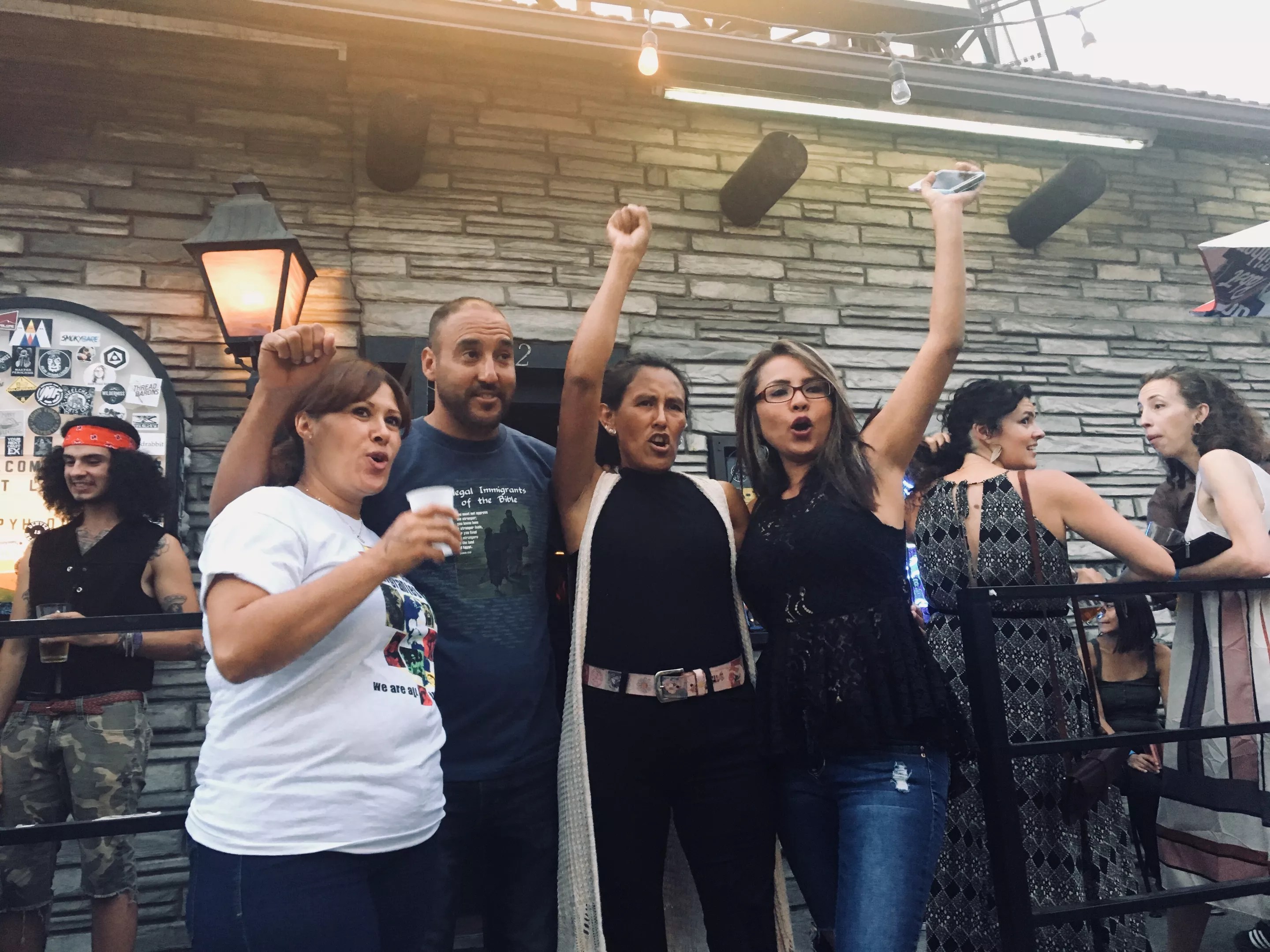
Chris Walker

Audio By Carbonatix
Congresswoman Diana DeGette used to have a tool in her political toolbox to help people fighting deportation proceedings: introduce a private bill, which could address the specific needs of an individual. That’s what she, along with Senator Michael Bennet and congressmen Ed Perlmutter and Jared Polis, did last year on behalf of Jeanette Vizguerra, the undocumented mother of four who had taken sanctuary at the First Unitarian Society in Denver (and was subsequently named one of TIME magazine’s 100 most influential people in the world in 2017).
As a result of the private bills, immigration officials granted Vizguerra and another sanctuary-seeker, Arturo Hernandez Garcia, stays of removal following a longtime policy that Immigration and Customs Enforcement and Homeland Security delay deportation proceedings when private bills are submitted by congressional representatives.
“But they changed their policy under Trump,” DeGette told a crowd gathered today, May 29, at the campus shared by Temple Micah and Park Hill United Methodist Church.
The Trump administration has given ICE permission to ignore private bills such as the one DeGette submitted to protect Vizguerra, the congresswoman said. Now, DeGette and other congressional representatives are focused on trying to force House Speaker Paul Ryan to consider a comprehensive immigration bill (which he has refused to allow onto the floor) through a measure known as a discharge petition, which requires 218 congressional signatures. If enough Republicans sign the petition – and as things stand, it’s close – Ryan has to cede control of the floor and allow immigration legislation to be considered.
But DeGette didn’t only come to the faith campus on Tuesday to provide an update on the latest drama around immigration legislation in Washington, D.C. She was also meeting Araceli Velasquez, a mother of three from El Salvador who is currently living in sanctuary at the northeast Denver location.

Ingrid Encalada Latorre (right) with fellow Colorado sanctuary-seekers Arturo Hernandez Garcia and Jeanette Vizguerra (center).
Chris Walker
“They need to be together at their home,” DeGette said as she stood next to the Velasquez family. Currently, Araceli’s family members – including her three young kids – have to visit her at Temple Micah/Park Hill United Methodist Church, where she has been avoiding immigration officials since August 9 of last year. She entered sanctuary assuming that ICE would not renew a stay of removal as she appeals a rejected asylum application (she fled gang violence in El Salvador in 2010).
“[The Velasquez family] puts an exclamation point on why we need comprehensive immigration reform in this country,” DeGette said.
Velasquez is one of four women currently in sanctuary in Colorado. Sandra Lopez and Ingrid Encalada Latorre are coming up on seven months in sanctuary, in Glenwood Springs and Boulder, respectively, and a third woman, Rosa Sabido, will have been in sanctuary in Mancos for one year on June 2.
As Westword explained in previous coverage, the concept of sanctuary is predicated on the understanding that immigration authorities respect houses of worship as being off-limits for enforcement. There has never been an immigration raid on a religious institution in the U.S., though the law does not expressly prohibit it. Rather, the restraint is built primarily on historical precedent, with churches, synagogues and mosques providing sanctuary for oppressed peoples as far back as medieval times, and more recently (and locally) during two broad sanctuary movements in the United States.
Jennifer Piper of the American Friends Service Committee says that the sanctuary movement in Colorado is growing. “We have over thirty congregations between Denver and Boulder,” she says, that serve as either “host” congregations that have agreed to take in sanctuary-seekers or “support” congregations that help with donations. Additionally, there are sanctuary coalitions with a half-dozen or more congregations each in Fort Collins and Colorado Springs.
During their meeting, Velasquez gave DeGette a pair of handmade earrings. After showing them to a room full of Velasquez’s supporters, DeGette said, “Next week when I go back to Congress, I’ll wear my earrings and tell my colleagues about Araceli and her family.”